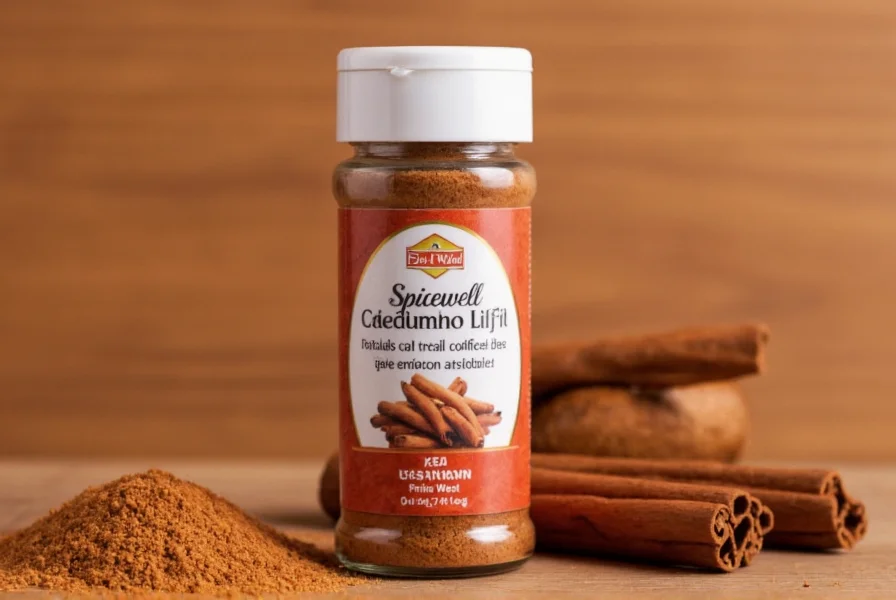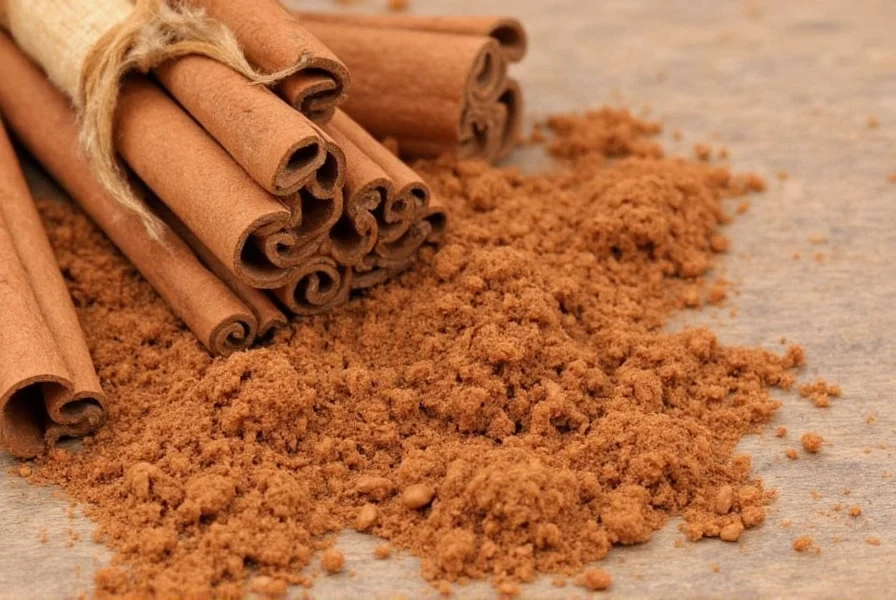The U.S. Food and Drug Administration (FDA) has issued a recall for SpiceWell Naturals Ground Cinnamon (3 oz bottles, UPC 845623019875) due to elevated lead levels exceeding the FDA's 0.1 ppm action level. The recall affects products with lot numbers SW202311 through SW202402 sold between November 2023 and March 2024 at major retailers nationwide. Consumers should immediately discontinue use and return products for a full refund.
Consumers facing another cinnamon product recall for lead contamination now have a specific product to check in their pantries. The FDA's latest action targets SpiceWell Naturals Ground Cinnamon after routine testing revealed lead concentrations averaging 0.35 parts per million (ppm), significantly higher than the agency's established safety threshold of 0.1 ppm for spices. This marks the third major cinnamon recall in the past 18 months related to lead concerns, following similar actions against other popular brands.
The affected SpiceWell Naturals product comes in distinctive red and gold packaging with "100% Pure Cinnamon" prominently displayed. Specific lot numbers subject to recall range from SW202311 to SW202402, with best-by dates from October 2024 through January 2025. Retail locations include nationwide grocery chains, natural food stores, and online marketplaces where the product sold for approximately $4.99 per container.
| Recall Details | Information |
|---|---|
| Product Name | SpiceWell Naturals Ground Cinnamon (3 oz) |
| UPC Code | 845623019875 |
| Affected Lot Numbers | SW202311 through SW202402 |
| Lead Levels Detected | 0.28-0.41 ppm (FDA action level: 0.1 ppm) |
| Recall Date | March 28, 2024 |
| Company Contact | 1-800-555-7242 or recall@spicewell.com |
Lead contamination in cinnamon products typically originates from soil absorption during cultivation or improper processing methods. Unlike previous recalls that primarily affected imported products, this domestic brand's contamination appears linked to specific harvesting practices in certain regions. The FDA's Center for Food Safety and Applied Nutrition determined that prolonged exposure to these lead levels could pose health risks, particularly for children under six and pregnant women.
Consumers concerned about lead exposure from cinnamon products should understand the specific health implications. While occasional consumption of contaminated cinnamon likely won't cause acute symptoms, regular intake can contribute to cumulative lead exposure. The CDC identifies no safe blood lead level in children, with potential effects including developmental delays, learning difficulties, and behavioral issues. Adults may experience cardiovascular problems, decreased kidney function, and reproductive issues with prolonged exposure.

For those who purchased the affected SpiceWell Naturals product, immediate action steps include:
- Check your pantry for the specific lot numbers mentioned in the recall notice
- Discontinue use immediately if you have affected products
- Return unopened containers to the place of purchase for a full refund
- For opened containers, securely seal in a plastic bag before disposal
- Contact the company directly for replacement products or additional information
This latest cinnamon recall for lead contamination follows an industry pattern that has concerned food safety experts since early 2023. Multiple testing facilities have reported inconsistent quality control measures among spice manufacturers, particularly regarding heavy metal screening. The FDA has increased its monitoring of imported spices, but this domestic recall indicates the problem extends beyond international supply chains. Consumers seeking safer alternatives should look for brands that publish third-party heavy metal testing results with their products.
When evaluating cinnamon products after another cinnamon recall for lead levels, consumers should consider several factors. Reputable manufacturers now routinely test for heavy metals and make results available upon request. Organic certification alone doesn't guarantee lead-free products, as soil contamination can occur regardless of farming methods. The most reliable indicators include batch-specific testing documentation and transparent sourcing information from manufacturers.

Food safety organizations recommend rotating spice brands to minimize exposure risk from any single contaminated batch. Proper storage in airtight containers away from light and moisture helps maintain spice quality but doesn't affect existing lead contamination. For households with young children, considering alternatives like cinnamon extract in liquid form may provide flavor without the same contamination risks associated with ground spices.











 浙公网安备
33010002000092号
浙公网安备
33010002000092号 浙B2-20120091-4
浙B2-20120091-4